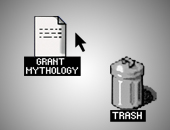
What is grant writing for those who have not been into doing proposal? Strangers to grants treat it as a baffling method of writing and researching. If you are among them, you might believe. Perhaps, you even heard various myths that skeptics concocted regarding grant proposals.
Well, ditch what you have heard because here’s the truth about doing proposals.
Yes, grant writing is a thorny process since it requires a lot of research and planning. But it is not confusing or mysterious at all. Just like doing a thesis, you have to research and follow a system or an outline. Writing a grant takes time and careful selection of available resources. You have to keep in mind that the main goal of your proposal is to explain why your organization needs the money. It also describes how the project will go on and what its goals are.
Junked the Myths
Skeptics did take the time and constructed these lies on grant writing. Now that you have the fact, let’s set these myths right:
1. Grant proposals are only for established institutions.
Then, you will not bother write a proposal because you only run a small organization. In fact, funding sources screen for-profit or non-profit organizations base on their projects. They don’t care how large or small your entity is. They are not bias on giving grants.
Funders have grant guidelines to inform who and what programs they fund. If you are a huge group applying for grant, but fail to follow their requirements, then they will reject your proposal. Meanwhile, small group that adhere to guidelines, are able to get the fund.
2. Before writing the proposal, make sure to accrue connections along the way.
If this were the case, why would funders announce or publish open grants to the public? This means that everyone in need is welcome to send application. So, whether you have contacts or not, your proposal will still be your key tool to get the fund. Proposals exist to explain your program in print. Funders assess and choose proposal with viable projects. They don’t base their decision on how long they know you or what affiliations they have with you. As such, it is still crucial to work hard on your proposal and make it better.
3. Grants are for programs that are in dire need of finance.
Grant giving is not an issue of who are in most need of the money. It is not enough that your proposal explains that your need is urgent. No matter how fiscally shaken your group is funders will overlook this status. They prioritize programs that can make a positive impact to a community or people. As such, highlight in your proposal the big difference your project can bring to the lives of recipients.






